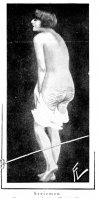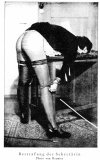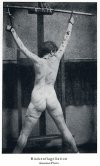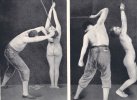That is incorrect. In the Spanish American War 1896-8, General Valeriano Weyler began a policy of 'reconcentration' moving Cuban civilians to central locations where they would be under the control of the Spanish army. The policy had disastrous consequences. Unlike many concentration camps in the twentieth century, the idea was to keep the Cuban civilians alive and protected until the Spanish were victorious. Unfortunately at least 30% perished from lack of proper food, sanitary conditions, and medicines. The policy generated severe anti-Spanish feeling in the United States which helped propel it into war in 1898. Finally, it did not benefit the Spanish in the war.
But General Kitchener was quick to pick up the idea, and implemented similar policies in the South African War from 1899 on. The use of the phrase 'concentration camp' in English obviously dates from then.
That is true that the Spanish used them in Cuba there are however a significant differences. The Spanish concentration camps were used more locally and usually connected with the local industries (ex: farming the local farms) and included all of the local residents.
There is an argument to be made that Weyler was using a modern adaption of the medieval method of fortifying agricultural settlements in disputed territory. You can see the remnants of that concept in rural Italy and Spain today.
{Side note: The American\South Vietnamese "fortified hamlet" system is the most modern example of the Weyler method.}
The British went much father. They relocated the women and children (because the men were not accessible being in the field fighting the British) far away from their farms and didn't let them work their farms thus denying them not only their residence but their ability to support themselves thru their own work (Weyler, while a brute, didn't do that) and then failed to provide adequate resources to sustain the population in those camps (which wasn't necessary under Weylers system as the people in the camps had the ability to support themselves).
I'm not saying that either system was just or right, or that the British intended for what happened in SA to happen (the Boer War is the classic examples of governments, on both sides, getting involved in a war with no clue), but the application was a significant step towards what the 20th Century thinks of when they think of concentration camps.
Of course when looking at history one must also look at the intention of the acts as well as the results. Wyler's system was ineffective in combatting the rebels but only mildly oppressive to its targets. The British system was more harmful and more effective towards both the non-combatants and the combatants. Spain lost, Britain won. In war much goes out the window.
However neither was intended as a system of genocide which the Nazi camps were.
These are interesting theoretical arguments based on how you decide to string the dots together not moral judgements based on current morality. There is no way to say yes or no as to which is correct and which is not.
I do know a Korean who argues that the Korean "Turtle" ships of late 1500s are the actual progenitors of the armored mobile warships of the world not the French Gloire launched almost 300 years later.
kisses
willowfall












